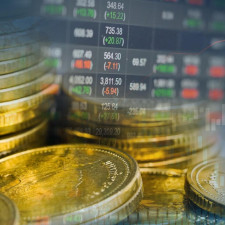UK Gambling Industry Gives a Sign of Relief After Release of Budget
- Details
- Category: Gambling Industry
- Created: Saturday, 02 November 2024 12:06
 There have been speculations that the 2024 budget will include a tax hike for the UK gambling industry. The good news is that tax increases for the sector were not part of Rachel Reeves’ budget. Also, it was the first budget from the Labour Party in 15 years. According to the top pay per head providers, there were several tax increases totaling £40 billion.
There have been speculations that the 2024 budget will include a tax hike for the UK gambling industry. The good news is that tax increases for the sector were not part of Rachel Reeves’ budget. Also, it was the first budget from the Labour Party in 15 years. According to the top pay per head providers, there were several tax increases totaling £40 billion.
As she attacked the economy and the £22 billion deficit that her Conservative party had inherited, Reeves stressed how critical it was for the government to act so dramatically.
Opposition leader Rishi Sunak accused Labour of fiddling with the figures and reneging on election pledges, which led to severe criticism of the intentions.
No Tax Hike for the UK Gambling Industry
The revelation that gross gaming yield bandings will be locked from 1 April 2025 to 30 March 2026 brought solace to UK Gambling, which is now undergoing a regulatory revamp and was the subject of much uncertainty. Additionally, to seal loopholes, proposals were revealed to alter the remote gambling obligation. This would include merging all forms of gambling provided over the Internet, telephone, TV, and radio under a single tax.
Reeves expedited the UK's economic transition with a new framework for capital gains taxes on investments and property, which was a major takeaway for the economy.
The domestic property tax rate will stay at 18%, the lower rate will increase from 10% to 18%, and the higher rate will increase from 20% to 24%. According to a sportsbook watchdog, a hefty increase in gaming taxes was seriously considered in the weeks preceding the budget.
It prompted Gavin Isaacs, CEO of Entain, to inform the government and investors about the broader economic effects of a possible tax hike. However, the UK's gambling tax rules will remain unchanged and will have a graduated scale from 15% to 50% for land-based gaming and 21% for remote gambling taxes.
Warnings from the Industry
According to the Institute for Public Policy Research (IPPR), doubling the present rate of remote gaming tax to 50% may garner £3.4 billion by 2030. Isaacs pointed out that such hikes would significantly reduce the sector's economic output.
The industry likewise issued strong alerts regarding the possibility that the sector's supplement could foster the growth of the illegal market. According to Grainne Hurst, CEO of the Betting and Gaming Council, fantasy economics is driving the need for tax increases.
In a statement, the Betting and Gaming Council (BGC) expressed concern that the proposed rise might be seen as similar to other European countries' "disproportionate" tax policies, which have driven and would drive players underground.
Gambling was noticeably absent from Chancellor Rachel Reeves' budget address. Her rebuttal was that other areas should shoulder the burden of tax increases, such as the national insurance and capital gains taxes (CGT) paid by businesses. According to Reeves, the government aims to increase taxes by £40 billion nationwide. A 50% hike in the fee for private planes is not included.
The budget has not spared gambling in any way. Alterations to the present tax structure may yet be necessary. Currently, 21% of operator profits go toward the UK's remote gaming fee. An increase from 15% was made in 2019. The general betting duty amounts to fifteen percent of net stake receipts on par with bookmakers' gross revenues. Additionally, 15% of pool betting winnings are pool betting duties.
Do you want to learn how to be a bookie? The best way to become one is by using pay-per-head services.
Bet on sports with BetOnline.ag today!































Comments powered by CComment